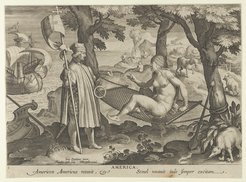Custom in Global Legal History: a Legist-ethnographer Technique for Knowledge of Epistemology and Normativity
Workshop Series 'Custom in Global Legal History'

Introduction
As an ancient legal concept, ‘custom’ has diffused across multiple disciplines and been expressed in a variety of ways in different regions. It even became a myth of the nation-state. Over the last four centuries, custom has emerged as a form of epistemological technique, marking a stark contrast in meaning and function compared to its earlier forms. As a form of technique, it made two important normative claims: “I know, therefore I govern” as well as “know yourself, and govern yourself.”
The workshop series focuses on the global circulation of a technique (rather than a concept) known as ‘custom’, which has continued to develop since early modern legal practices. This technique is dedicated to employing a collaboration of bureaucratic knowledge and legal knowledge to register, investigate and ultimately ‘discover’ the normative ‘nature’ or ‘general spirit’ of different regions, thus weaving a mosaic of legal traditions. Legist-ethnographers monopolised the legitimacy to define the nature and expected behaviours of the surveyed subjects, effectively using empirical knowledge to establish normativity and transform empirical knowledge into normative knowledge. These legist-ethnographers may include jurists, judges, missionaries, moral theologians, legislators and legal historians.
The workshop series aims to facilitate interaction among scholars working on custom. Moreover, it seeks to develop an intellectual forum to deepen our understanding of this fundamental notion for legal history and observe how legal history perceives its cumulative heritage and its fate as a global discipline.
For more information, please contact Haochen Ku.

